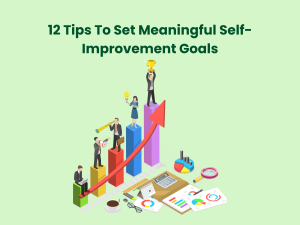Did you know there are certain psychological hacks that can actually help you become more successful, whether it’s at work, in social settings, or just navigating life in general? These aren’t complicated theories; often, they’re simple psychological insights consistently used by successful people. They can give you helpful advantages and even a bit more control over how things turn out in your day-to-day life. Let’s explore some of these 15 clever psychological approaches that can help you feel more confident in various situations, from school and work to your leisure time!
#1 Offer a Small Gift or Favor
If you’re looking to subtly encourage people to act more positively towards you, try offering them something for free. Don’t worry, it doesn’t have to be anything expensive! Even small gestures, like a thoughtful little gift or doing someone a favor, can really make a difference in how they see you and interact with you. When you do something nice for someone, it can make you appear more approachable, helpful, and generally leave them with a more positive impression of you.
#2 Notice Where Eyes Go During Laughter
Want a little insight into the dynamics within a group? Or maybe you’re curious about who in a group likes you the most? Pay close attention the next time everyone laughs at a joke. See who looks at whom during that shared moment of laughter. Apparently, people instinctively tend to glance at the person they feel closest to within the group when they laugh together. This little psychological observation can be useful not just for spotting who might like you, but also for getting a sense of who has a strong connection or deep affection for each other.
#3 Change Your Position During Tension
We’ve all been in those situations where a conversation seems to suddenly turn tense or start escalating into an argument. Unless you actually enjoy drama, it’s usually best to try and steer clear of these situations getting out of control. Even if you have a perfectly valid point, people often get more irritated when they feel they’re being challenged or might be wrong. So, if you feel an argument starting to create tension, try simply changing your physical position – like sitting or standing right next to the other person instead of across from them. This can subtly make you seem less confrontational and less like a direct threat, which can help them eventually calm down.
#4 Watch Their Feet
Here’s a slightly less obvious body language cue to watch: pay attention to the direction of the person’s feet when you’re talking to them. According to some interpretations, their feet can give you an immediate idea of how interested or comfortable they are in the conversation. For instance, if their feet are pointed directly towards you, it often suggests they are engaged and interested in what you’re saying. If, however, their feet are pointed away from you, their body might be subconsciously signaling that they don’t want to continue the conversation much longer. If their feet are pointing towards the door, they might be subtly indicating that they intend to leave and feel like you’re keeping them!
#5 Subtly Mirror Them
Here’s a technique that can help build rapport: try subtly mimicking the body language of the person you’re talking to. By gently mirroring how they stand, their hand gestures, or even their speaking rhythm, you can effectively build a sense of trust. They’ll likely feel more comfortable and like you more because, on a subconscious level, you’ll seem more similar and compatible with them. This phenomenon, sometimes called the “chameleon effect,” can really help social interactions flow more smoothly and genuinely increase the feeling of connection between people. Put simply, we tend to enjoy talking to others who reflect our own postures, facial expressions, and other mannerisms.
#6 Use the Power of Silence
Have you ever been in a conversation where someone gave you an answer that just felt… incomplete? Maybe you wanted them to elaborate, but they stopped talking. There’s a clever psychological trick to encourage people to reveal more than they initially intended: simply use the power of silence. If you’re not quite satisfied with the answer you received, try remaining silent for a few moments and keep looking at them steadily. Often, the combination of that slightly awkward silence and your focused eye contact will create enough pressure that they feel compelled to fill the quiet by sharing more information.
#7 Try Subtle Physical Cues
This next hack can be quite powerful, so it’s really important to use it responsibly and ethically, especially with people who might be easily influenced. Often, when we’re communicating, we want to get a positive response or agreement from someone, whether it’s for a sale or just getting them on board with an idea. A subtle but effective way to encourage this is by nodding while you are delivering your message, particularly when you reach the points you want them to agree with. Since people have a natural tendency to mimic body language, they will likely start nodding back while you’re talking. The idea is that this physical act of nodding can subconsciously make them more inclined to actually agree with your message.
#8 Use Excitement to Your Advantage (in Dating)
This particular psychological tip can come in really handy when you’re on a date! The idea is to choose an activity that gets your date’s heart rate up and involves some adrenaline. Take them somewhere exciting – maybe try a thrilling roller coaster ride or go see a scary horror movie. The psychological theory behind this is that the rush and excitement they feel from the activity might be subconsciously linked or “attributed” to you in their mind, making them think they’re feeling excited about you rather than just from the situation itself.
#9 Offer Them a Limited Choice
Whenever you want someone to make a decision that aligns with what you prefer, try giving them a choice, but make sure both options lead to an outcome you’re happy with. For example, if you want your kids to eat some vegetables, don’t ask them if they want vegetables – chances are, they’ll just say no! Instead, offer them a choice within the vegetable category, like asking, “Would you like broccoli or do you prefer those tasty baby carrots?” The children will feel like they have a lot of control because they got to make a choice, even though you’ve already decided that vegetables are on the menu. This clever little trick doesn’t just work with kids; you’ll find it’s effective with adults too – think about how waiters often ask if you’d prefer soup or salad with your meal.
#10 Use Passive Language When Needed
While passive language might not be great in formal writing like research papers, it can actually be pretty useful in everyday social interactions. Using the passive voice can help keep things smoother and maintain good feelings between people. Think about it: instead of saying something direct like, “You didn’t send me the book,” you could say, “The book wasn’t sent.” Notice how the second sentence feels different? The first sounds like you’re blaming someone directly, while the second sentence puts the focus on the item itself – the book – rather than pointing fingers at the person. By using passive language this way, you can often avoid confrontation and reduce the chances of conflict.
#11 Make an Effort to Use Their Name
Remembering and using someone’s name is actually really important, mostly because people feel a sense of importance when they hear their own name. Because of this, calling people by their name can make them like you pretty much instantly and can help build a feeling of trust and connection right away. Although it might seem tricky at first, if you can get into the habit of not only remembering someone’s name when you meet them, but also using it naturally throughout your conversation, they’ll likely find you more engaging and think you’re a pretty wonderful person.
#12 Understand the Impact of Touch
Physical touch, when used appropriately and respectfully, can be a powerful tool in communication that helps people connect and understand emotions better. A simple, brief touch on someone’s shoulder or arm (in appropriate social contexts) can help create a subtle emotional and physical bond. Using touch during moments of shared joy, laughter, or excitement can positively emphasize those feelings and reinforce them. This can help add sincerity to your words, express your emotions more effectively, and ultimately help you build trust with others.
#13 Make Them Repeat or Explain Their Joke
Most jokes tend to lose their humor when you have to repeat them, and you can use this to your advantage, especially if someone tells a joke at your expense. Act as if you didn’t quite hear or understand the joke correctly and ask them to repeat it for you. Once they go through telling it again, it’s often not nearly as funny as it was the first time around. Alternatively, you could pretend you didn’t “get” the joke at all and ask them to explain what’s supposed to be funny about it. Having to explain a joke is even more awkward and less impactful than just repeating it! This tactic can help defuse a potentially uncomfortable situation.
#14 Know the Simple Way to Ask for Help
Let’s face it, sometimes we all need a hand with something, whether it’s because we genuinely can’t do it alone or just… well, maybe we’re feeling a bit lazy! In most relationships, being demanding or unpleasant isn’t going to get you far. So, when you need a favor or some assistance, try starting your request directly with, “I need your help.” In many cases, people are likely to agree to your request. This is largely because most people don’t enjoy the feeling of guilt that comes from not helping someone who has directly asked for it, and let’s be honest, it often feels good to be able to lend a hand.
#15 Offer Validation
A lot of what drives our actions comes from our underlying need to feel validated – to feel seen, heard, and understood. So, one of the best ways to encourage people to like you is to simply give them that feeling! The next time you’re talking with someone, especially when they say something that seems really important to them, try rephrasing what they just said back to them in your own words. This simple act shows that you were truly listening and are genuinely interested in what they have to say. It makes them feel important, and that’s exactly what validation is!
Now that you know about these psychological hacks, it’s really important to keep in mind that the main purpose isn’t to manipulate others. Instead, the goal is to help you better understand when and where both you and other people might be more open or vulnerable from a psychological standpoint. Using this knowledge can improve your interactions and confidence, but it should always be done respectfully and ethically.



